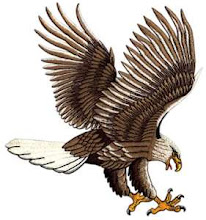


Captain Harl Pease, Jr., (April 10, 1917-October 8, 1942) was a United States Army Air Forces officer and a recipient of the United States military's highest award, the Medal of Honor, for his actions during World War II. He is the namesake for Pease Air Force Base.
Captain Harl Pease, born and raised in Plymouth, New Hampshire, enlisted in the Army Air Corps in 1939 after graduating from the University of New Hampshire the same year with a degree in Business Administration and becoming a brother of Theta Chi Fraternity.
He was commissioned as a Second Lieutenant a year later and awarded pilot rating upon completion of flight training at Kelly Field, Texas. He was immediately called to active duty and participated in B-17 bombing missions in the Pacific Theater.
It was during one of these missions, on August 6, 1942, that one engine of Captain Pease's B-17 failed, and he was forced to return to his base in Australia. His unit, the 19th Bomb Group, was scheduled to deploy to Papua, New Guinea, to support a maximum effort mission on August 7. It would require all available aircraft. Captain Pease and his crew, with their aircraft out of commission, were not scheduled for the mission.
Determined not to "miss the big show", the crew voluntarily selected and worked over one of several unserviceable B-17s at the base. They rejoined the 19th at Port Moresby, Papua, New Guinea at 1 a.m. after having flown almost continuously since early the preceding morning.
With only three hours rest, Captain Pease took off with the group to bomb targets at Rabaul, New Britain. Forty to fifty miles from the target, the group was attacked by more than 30 Japanese fighters. Captain Pease and his crew shot down several of the enemy, fought their way to the target, and bombed successfully.
After leaving the target, Captain Pease’s crippled B-17 fell behind the rest of the formation. Once again attacked by more than 30 Japanese fighters, he was seen to drop a bomb bay gasoline tank which was aflame, and it is believed that he and his crew were subsequently shot down in flames. However, as his aircraft lost altitude, Pease and another crew member bailed out. They were both captured and taken to a POW camp in Rabaul. He languished there until October 8, 1942. On that date, Pease, along with three other Americans and two Australians, were forced to dig their own grave and they were beheaded.
On December 2, 1942, the Medal of Honor, awarded posthumously to Captain Pease for his heroism in combat, was presented by President Franklin D. Roosevelt to the hero’s parents. His actions represent the true spirit of New Hampshire’s patriots.
The beheaded men were buried by local missionaries. It was not until 1946 that their bodies were recovered for a full military burial.
Medal of Honor Citation
For conspicuous gallantry and intrepidity above and beyond the call of duty in action with the enemy on 6–7 August 1942. When 1 engine of the bombardment airplane of which he was pilot failed during a bombing mission over New Guinea, Capt. Pease was forced to return to a base in Australia. Knowing that all available airplanes of his group were to participate the next day in an attack on an enemy-held airdrome near Rabaul, New Britain, although he was not scheduled to take part in this mission, Capt. Pease selected the most serviceable airplane at this base and prepared it for combat, knowing that it had been found and declared unserviceable for combat missions. With the members of his combat crew, who volunteered to accompany him, he rejoined his squadron at Port Moresby, New Guinea, at 1 a.m. on 7 August, after having flown almost continuously since early the preceding morning. With only 3 hours' rest, he took off with his squadron for the attack. Throughout the long flight to Rabaul, New Britain, he managed by skillful flying of his unserviceable airplane to maintain his position in the group. When the formation was intercepted by about 30 enemy fighter airplanes before reaching the target, Capt. Pease, on the wing which bore the brunt of the hostile attack, by gallant action and the accurate shooting by his crew, succeeded in destroying several Zeros before dropping his bombs on the hostile base as planned, this in spite of continuous enemy attacks. The fight with the enemy pursuit lasted 25 minutes until the group dived into cloud cover. After leaving the target, Capt. Pease's aircraft fell behind the balance of the group due to unknown difficulties as a result of the combat, and was unable to reach this cover before the enemy pursuit succeeded in igniting 1 of his bomb bay tanks. He was seen to drop the flaming tank. It is believed that Capt. Pease's airplane and crew were subsequently shot down in flames, as they did not return to their base. In voluntarily performing this mission Capt. Pease contributed materially to the success of the group, and displayed high devotion to duty, valor, and complete contempt for personal danger. His undaunted bravery has been a great inspiration to the officers and men of his unit.


